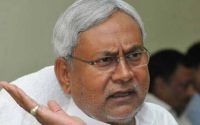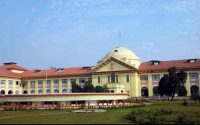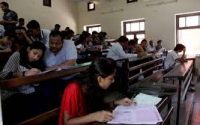Democracy On Test In Bihar
Source:-https://www.mid-day.com
the International Society of Political Psychologists in Lisbon, in the summer of 2019, as American scholar Professor Shawn Rosenberg began reading his paper, Democracy Devouring itself: The Rise of the Incompetent Citizen and the Appeal of Right Wing Populism. The excitement soon segued into murmurs of protest as Rosenberg claimed that democracy was devouring itself, and then went on to predict, according to Politico Magazine: “In well-established democracies like the United States, democratic governance will continue its inexorable decline and will eventually fail.”
Rosenberg’s thesis is that democracy requires its citizens to do hard work, sift from an avalanche of information the true from the false, the good from the bad; they must respect diversity and judge the impossibility of securing a promised political outcome. Until recently, he said, the democratic culture was nurtured by those who manned public institutions such as legislators, judges, journalists, intellectuals, and experts in myriad fields. Their marginalisation has lowered the quality of public discourse and made citizens susceptible to conspiracy theories and fake news.
This, in turn, has enabled populist leaders to offer simple answers to complicated questions. Rosenberg concluded: “Before it is too late, the democracies might directly address…the inadequacy of their citizens [and] create the citizenry that has the cognitive and emotional capacities democracy requires.”
Bihar is as far away from the United States as you can get. Yet, in many ways, Rosenberg’s thesis and the quality of Indian democracy will be on test in the forthcoming Assembly elections. To fathom that, you only have to recall the most haunting image of 2020 – lakhs of migrant labourers trudging down the highway to escape the cities where they had been locked in because of the Central government’s strategy to combat the novel Coronavirus.
Among the army of migrants who returned home, an estimated 32 lakh were Biharis, who reeled under the shock of the Indian state’s callousness. Did the Modi government fail to anticipate the misery the lockdown would inflict on migrant labourers? Or was it that the government did not care? What infuriated Bihari migrants, was Chief Minister Nitish Kumar’s attitude – he insisted they stay put in cities, then refused to despatch buses to neighbouring states to fetch them and was initially unwilling to pay for their train fares.
Multiply 32 lakh with the average Bihari household size of 5.5 persons and you have 1.76 crore people, or nearly 17 per cent of Bihar’s population of 10.37 crore (2011 Census), who suffered acutely because of an ill-conceived lockdown and Kumar’s reluctance to facilitate their return to Bihar. Months later, Bihar’s floods ravaged an estimated 83.62 lakh people. Kumar blamed the floods on climate change and said natural calamities occurred in all regions, including America.
Kumar’s ban on liquor, imposed from April 1, 2016, was initially appreciated by women, but it soon became a harrowing experience for people. By November 2019, 1.67 lakh people had been arrested for violating the ban on liquor. Of them, 70 per cent belonged to the Other Backward Classes and Dalit communities. By comparison, 1.11 lakh people were arrested across India during the two years of Emergency, according to the Shah Commission. By November 2019 also, two lakh prohibition-related cases were pending with the Patna High Court.
Media reports suggest the anti-incumbency sentiment against Kumar is strong. Yet the four-party National Democratic Alliance, of which his Janata Dal (United) and the Bharatiya Janata Party are the principal engines, has a formidable caste arithmetic, a factor cited to predict Kumar could still bag a fourth term as Chief Minister. The NDA represents the “coalition of extremes”, or an alliance of the upper castes and segments of Extremely Backward Castes (EBCs) and Dalits.
Given that the impact of the lockdown, flood and prohibition have been most severe on EBCs and Dalits, would Kumar’s return imply that caste loyalties can be worked upon to make people forget their own miseries? What meaning would democracy have had if Mrs Indira Gandhi had returned to power in the post-Emergency elections?
Kumar has built his image as Mr Governance. A study, however, shows that Bihar occupied the bottom rung on human development index in 2018; it was ranked 33rd in 2017-18 in terms of per capita net state domestic product; it was 30th in 2011-12 on poverty rate. It is argued that Kumar will piggyback Prime Minister Narendra Modi to power. So is it that Hindutva and the quest of the upper castes to regain control, after 30 years, over the levers of power make them indifferent to Modi grievously hurting the economy and shrinking our freedom?
Should the NDA return to power and the BJP stake a claim to the chief minister’s chair in case Kumar’s party performs poorly as compared to the BJP, Bihar will become the last north Indian state to fall to Hindutva. The BJP’s dominance in north India will have a deleterious impact on social diversity, the rights of citizens and their freedom. Biharis, hopefully, know that on them rests the task of proving wrong Rosenberg’s thesis of democratic governance being in an “inexorable decline” worldwide.



